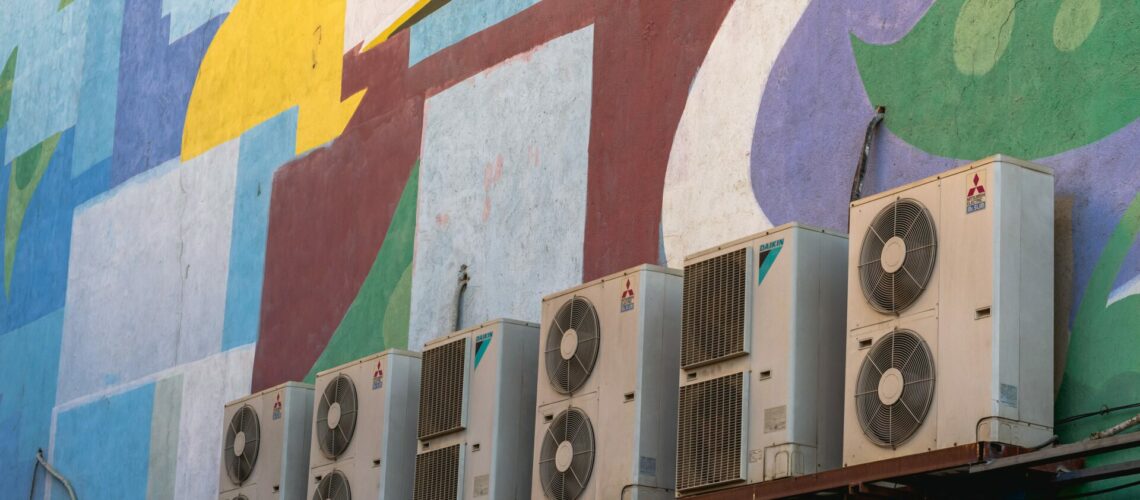In the past two decades, the awareness and concern for the environment have reached unprecedented levels. Events like the Paris Agreement and global youth-led climate strikes have signified the global dedication to tackle climate change. Films like “An Inconvenient Truth” and “Before the Flood” have leveraged the power of cinema to bring environmental issues to the forefront. These media messages have been catalysts, encouraging industries, including HVAC, to introspect and innovate. Amidst these shifts in global consciousness, there has been a remarkable transformation in the Heating, Ventilation, and Air Conditioning (HVAC) industry. As technology has advanced, so has the capability for HVAC technology systems to become more efficient, environmentally friendly, and adaptive to the needs of consumers.
Advancements in Efficiency and Eco-friendliness
One of the most significant shifts in the HVAC industry over the past 20 years has been the transition from energy-guzzling units to more energy-efficient systems. Earlier HVAC units consumed a lot of electricity and had a shorter lifespan, leading to higher utility bills and more frequent replacements. With innovations like variable-speed compressors and advanced thermostat controls, modern systems use energy more judiciously, proving to be a boon for both the environment and homeowners’ wallets. This efficiency has not only reduced our carbon footprint but also paved the way for further technological advancements. A prominent player in championing these advancements has been Provincial Smart Home Services. With a reputation for being at the forefront of HVAC technology, they have consistently pushed the boundaries of what’s possible in terms of efficiency and sustainability. Their dedicated research and adherence to environmental standards have made them a beacon of progress in the HVAC community.
Integration with Smart Home Technology
The era of smart homes dawned upon us much like the sci-fi movies once imagined – where everything from lighting to temperature could be controlled with just a voice command or a touch. The HVAC industry, not one to be left behind, seamlessly integrated with this smart revolution. Now, not only can systems adapt to external conditions, but they can also learn and anticipate user preferences over time. Today’s HVAC systems are smarter than ever. They can detect when a room is occupied, adjust temperatures based on real-time weather data, and even predict when maintenance is required. Provincial Smart Home Services, as their name suggests, have been instrumental in blending the traditional world of HVAC with the futuristic realm of smart home technology. Their smart HVAC solutions offer homeowners unparalleled control and convenience, making home comfort a truly 21st-century experience.
Embracing Environmentally Friendly Refrigerants
One often overlooked, but crucial, aspect of HVAC systems is the refrigerant – the substance responsible for the cooling process. Earlier systems relied on refrigerants like R-22, which, though effective, was harmful to the ozone layer. Recognizing the environmental risks, the industry has phased out such substances in favor of more eco-friendly options like R-410A. This conscious shift highlights the industry’s commitment to global ecological balance and sustainability. The commitment to a greener planet has been echoed by companies like Provincial Smart Home Services, who not only endorse environmentally-friendly refrigerants but also prioritize educating their clients about their benefits. It’s a step that resonates with the broader wave of environmental awareness that films like “Avatar” metaphorically portrayed, emphasizing the interconnectedness of life and the consequences of abusing natural resources.
Toronto’s Green Evolution and the Rise of ESG Investments
Toronto, the vibrant heart of Ontario, has been a significant player in the sustainable transformation of the HVAC industry and beyond. Recognizing the vast potential and the pressing need for green innovation, the city has witnessed a surge in environmental, social, and governance (ESG) investments over the past two decades. These investments have been instrumental in funding startups and established companies alike, aiming to reduce carbon footprints and promote sustainable practices. Provincial Smart Home Services, based out of this bustling metropolis, is a testament to the city’s commitment, as they’ve benefitted from and contributed to this ESG-focused financial landscape. As Toronto continues to grow, its alignment with ESG investment principles is not just about being financially savvy; it’s a reflection of the city’s broader vision for a sustainable future. It sets an exemplary precedent, demonstrating how urban centers can be both economically robust and environmentally conscious.
What Lies Ahead for HVAC Technology
The advancements of the last 20 years are just the tip of the iceberg. As environmental movements continue to gain momentum and films continue shedding light on the pressing need for sustainability, industries across the board will be propelled to innovate further. With such global attention, there’s a renewed sense of urgency and purpose in technological evolution. The HVAC industry, with pioneers like Provincial Smart Home Services leading the charge, is well poised to embrace the challenges of the future. The next frontier might see HVAC systems that not only respond to immediate human needs but also proactively combat broader environmental challenges. Imagine systems that cleanse the air of pollutants or even contribute to generating renewable energy. As the lines between science fiction and reality continue to blur, the symbiotic relationship between the environment and HVAC technology becomes all the more profound.
In conclusion, as we reflect on the last two decades, it becomes evident that the HVAC industry’s journey mirrors the global narrative. It’s a story of recognizing past mistakes, innovating relentlessly, and striving for a harmonious existence with nature. As we march forward, the hope is to continue merging innovative technologies with sustainable practices for a brighter, greener future.

